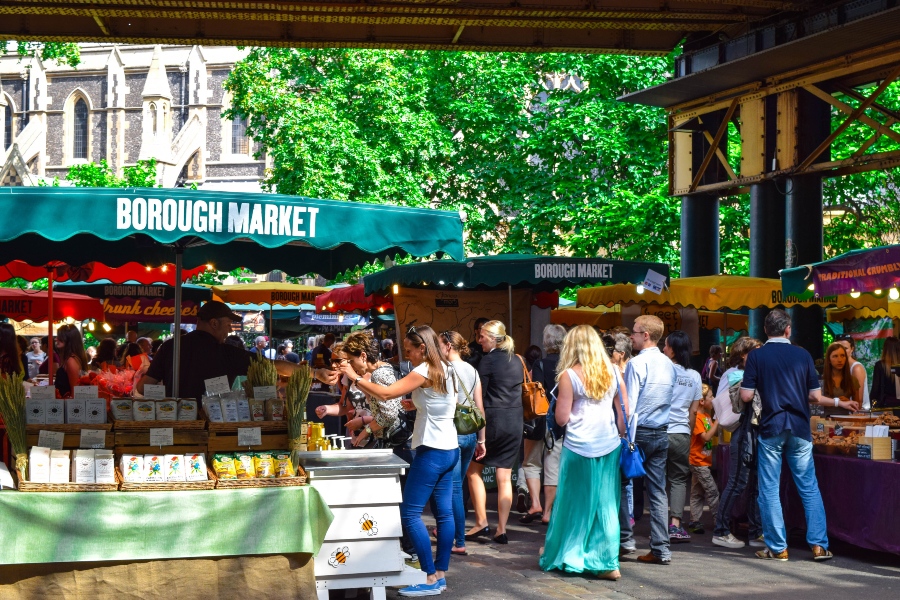You’ve decided to start your own food business, that’s a big first step. Now comes all the practical considerations, both macro and micro, that will get you set up and serving customers. If you want to be a successful food business, having a clear vision is hugely important and part of that includes figuring out the optics of your brand.
Many food businesses start small, perhaps upscaling from a home business, or you might have gotten funding and be taking advantage of a gap in the food market. Either way, you will likely be looking for a cost effective option and for many food businesses, this means forgoing a storefront and instead finding a commercial kitchen to license. It offers all the practical benefits of a proper working kitchen, without the sizeable price tag. But before you settle on a particular space, you should consider the following macro trends for new food businesses: your origin story, source-ability and your brand’s personality.
Your Origin Story: A History Worth Mentioning
 Credit: Guiness – https://www.guinness.com/en-gb/our-story/
Credit: Guiness – https://www.guinness.com/en-gb/our-story/
Guiness is a well known, global brand with iconic status thanks to the unique black and white appearance of its beer. It proudly boasts of being established in 1759 when ‘A young Arthur Guinness leaves home and…signs a 9000-year lease on a dilapidated brewery at St. James’s Gate.’
Food and drinks brands carry provenance – an origin story that can be traced in its history. You might be starting in a commercial kitchen in West London, but what does that say about your brand? Not much, until you relate it to your brand’s humble beginnings.
How Does Your Origin Story Pair With Your Commercial Kitchen Choice?
Granted, not all food businesses can start in historic buildings, though that might be an option. What is key is that foodies, like all of us, love a story.
Crafting the origin story of your food business’ start is important. Think about who founded the business, why you chose to start this particular food business. Was it because of a love of cake baking? Did you want to bring healthy vegan food to the uninitiated? Were you so in love with your family recipes that you wanted more people to enjoy them?
All of that creates a narrative around your brand that people can attach to. Then years down the line, they’ll be able to get a sense of the people behind the brand.
Green & Local: Think About Sourceability

Sourceability is a growing trend and it is directly tied to sustainability and changing customer trends. Being able to track, and share, where your ingredients come from can be a valuable selling point for your food business. This can include sourcing meat directly from local farms, bottling your drinks in a particular region, or bringing your food to stalls and markets near to your commercial kitchen.
Customers want to know more about their food. Traceability, knowing where each ingredient is coming from, whether local or international, is a significant factor that they use to make decisions about what to consume. As global warming and environmental changes continue to be hot topics, we are also seeing a push towards the green-ness of food businesses. Food waste, recyclable containers and minimum environmental impact are all of interest to customers.
How Does Sourceability Translate To Your Business & Which Kitchen You Choose To Rent?
Look at licensable kitchens in relation to your suppliers, is the location good for transporting goods and does the local infrastructure support food businesses?. If you can show that your ingredients are travelling a minimum distance or that you are working with other small businesses, green suppliers and similar, then you can use that as a selling point for your business – while doing your part for a greener world.
Your Brand’s Personality: Showcasing Your Food Business

Is your commercial kitchen clean, modern and sleek? Does it have a classic, stylish, functional look? Your business needs to be in a space that reflects your brand and can be used to showcase your brand’s personality.
A licensed commercial kitchen is different to a storefront food business because you don’t have the shop doing the visual work of showing off your products and brand. Your displays and foods or drinks will be picture perfect and get mouths watering.
With a food business in a commercial kitchen, you have to look to your environment and other expressions of your brand to really get your personality out there.
As we mentioned with your origin story, your brand’s personality will help sell your products. Your packaging, logo and other branding is certainly a contributing factor and that needs to sit with your brand and who your target audience is, but your space can contribute to that and give an authenticity that customers are craving right now.
How Does My Brand Personality Affect My Choice Of Commercial Kitchen?
Consider the other business that you are sharing a building with. Are you in a network of commercial kitchens with other small food businesses around you? Cross promotion of brands that sit with yours, and networking with those same businesses will show that you support other food startups. You can best showcase this using your website and social media.
You might also want to be aware of if you’ll be alongside any competing brands. A bit of friendly rivalry isn’t a bad thing, you could find ways to collaborate, but you should consider what being in direct competition will feel like in your workspace.
A great looking commercial kitchen – not one that is run down or looks unclean – can be photographed. Choose a commercial kitchen that you would want to publicise and share the parts of your food prep process, your happy staff and new foods on Instagram and in blog posts. Not only will it get customers interested in your brand and eager to seek you out, but also give peace of mind that their food is coming from a clean and top of the range kitchen and creative and happy staff.
What’s Next? Now Think About The Micro
The above covers the big topics, the macro considerations of your brand, the look and feel of your location and how considering these factors can help you to choose the right commercial kitchen for your business.
Now, you need to start getting into the details of running a commercial kitchen. We’ve created a guide on the do’s and don’ts for commercial kitchens, including types of space, equipment buying vs hire, and legal considerations. Take a look or check out our blog for the latest food business news and advice.